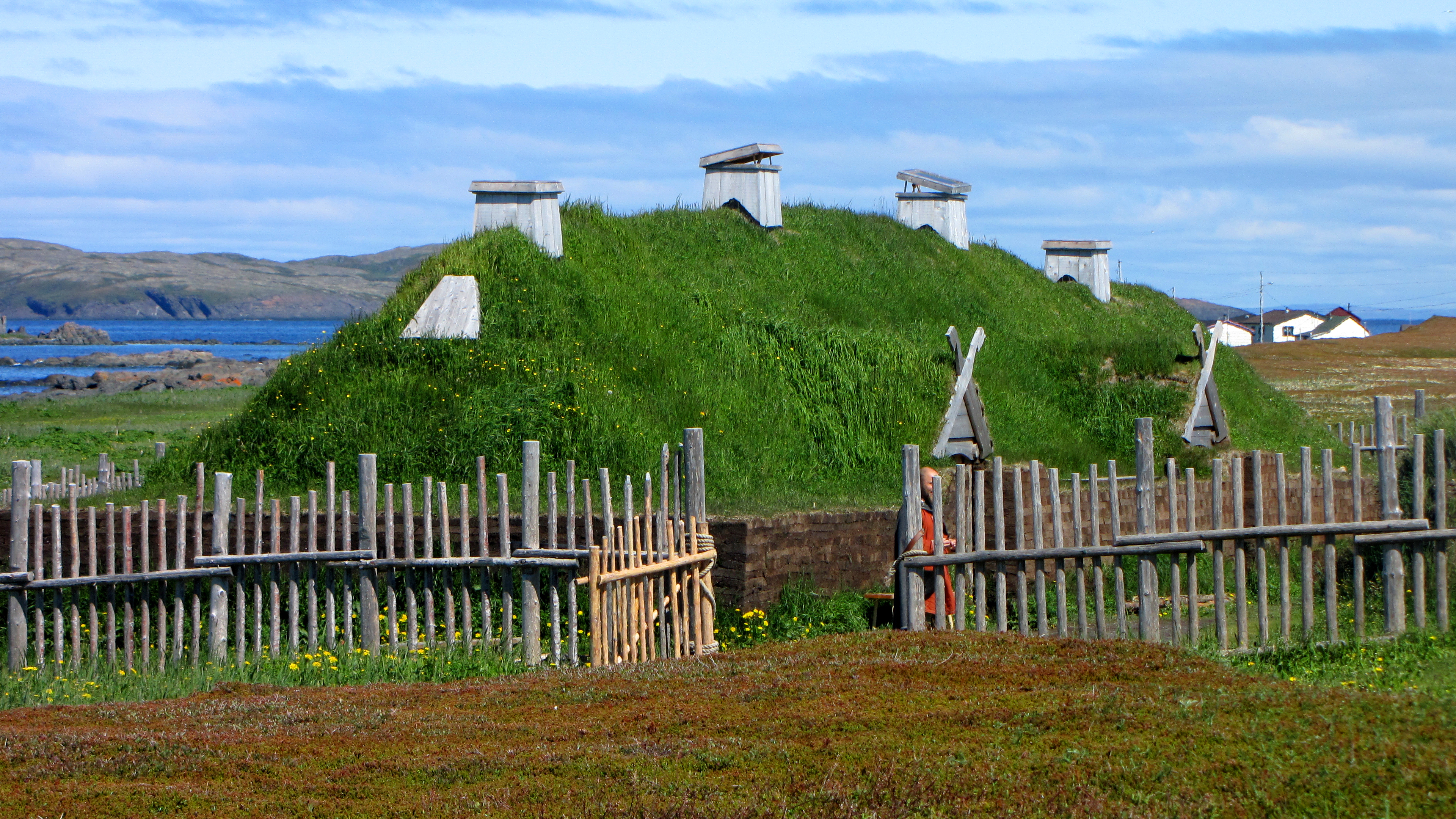New Viking site found in Newfoundland
Digital Reporter
Saturday, April 2, 2016, 11:58 AM - Decades after archaeologists uncovered evidence of Viking settlement in Newfoundland, a team of researchers has located a second Viking site, using satellite analysis.
This new site was apparently located on Point Rosee in Newfoundland's extreme southwest, hundreds of kilometres away from the first settlement discovered on the island's Great Northern Peninsula.
"This new site could unravel more secrets about the Vikings, whether they were the first Europeans to 'occupy' briefly in North America, and reveal that the Vikings dared to explore much further into the New World than we ever thought," lead researcher Sarah Parcak told the BBC, which is co-producing a documentary on the find with PBS.
The researchers didn't trek across Newfoundland at random. Rather, they relied on new techniques using analysis of satellite images taken from hundreds of kilometres above the Earth's surface.
Parcak told the New York Times that hundreds of sites across the eastern seaboards of Canada and the U.S. were considered, and the Point Rosee location looked promising, marked by "'a dark stain' with buried rectilinear features."
An expedition to the site last summer uncovered traces of a kind of iron known to be worked by Norse peoples, as well as turf walls and a Norse-style hearth. The iron itself -- a variety of 'bog iron' extracted from bogs in Scandinavia rather than mined from the ground -- was strong evidence of Norse occupation of the site, as no indigenous peoples are known to use that iron smelting technique.
"We did not find one single shred of any [contradictory] evidence, so that leaves two options," Parcak told the CBC. "It's either a new culture that looks and presents exactly like Norse, or Norse ... But obviously we have a lot of work left in front of us before we can say beyond a shadow of a doubt that it is."

Image: Sarah Parcak, right, in a handout image from the BBC
In an interview with the CBC, Parcak avoided referring to the site as a "settlement," saying it was likely a small farm or temporary winter camp.
Other scientists are not quite as convinced of the Norse connection. Birgitta Wallace, whom the CBC says was part of the excavation at L'Anse aux Meadows, said the "roasted" iron ore found at the site may have another explanation.
"The roasting of the ore could be accidental. All it would take is a camp fire on the ground where the soil is full of bog ore. Such areas are common in Newfoundland," she wrote in an email to the CBC.
Norse settlement predated Columbus

Image: Viking longhouse recreation at l'Anse aux Meadows. D. Gordon E. Robertson/Wikimedia Commons
The discovery in 1960 of a Viking site at l'Anse aux Meadows in northern Newfoundland rewrote the story of when Europeans first encountered the New World.
Dated to roughly around 1,000 CE, an expedition led by Leif Eiriksson eventually numbered dozens of people, and evidence suggests the site was occupied for around a decade, according to Parks Canada.
Eiriksson's expedition, and subsequent ones, appears in Viking sagas, and apparently used the site as a base for further expeditions across the northeastern coasts of North America. Their journeys weren't just for the discovery: They brought back cargoes of wood, invaluable to other Viking settlements in treeless Greenland. Such expeditions may have reached as far south as New Brunswick, and the sagas' mention of wild grapes explain the land's Norse name, Vinland.

Image: Torbenbrinker/Wikimedia Commons
Though remarkable, the small colony wouldn't last. The Vikings got on poorly with the original Aboriginal inhabitants of Newfoundland, and the sheer cost of mounting expeditions to the remote site made it economically unfeasible.
More research is needed, and a second expedition is planned, but if the discovery at the site does turn out to be Norse in origin, it may spark more searches for evidence of Viking presence in North America.
Archaeologist Douglas Bolender told National Geographic: "If Sarah Parcak can find one Norse site using satellites, then there’s a reasonable chance that you can use the same method to find more, if they exist. If Point Rosee is Norse, it may open up coastal Canada to a whole new era of research."
SOURCES: New York Times | CBC | BBC | Parks Canada | National Geographic



